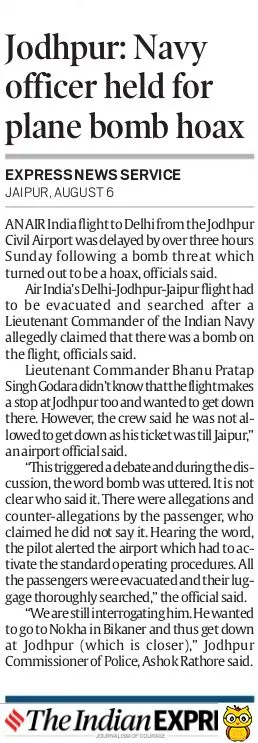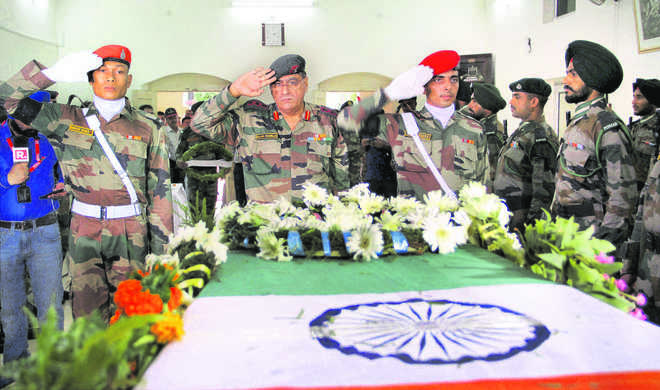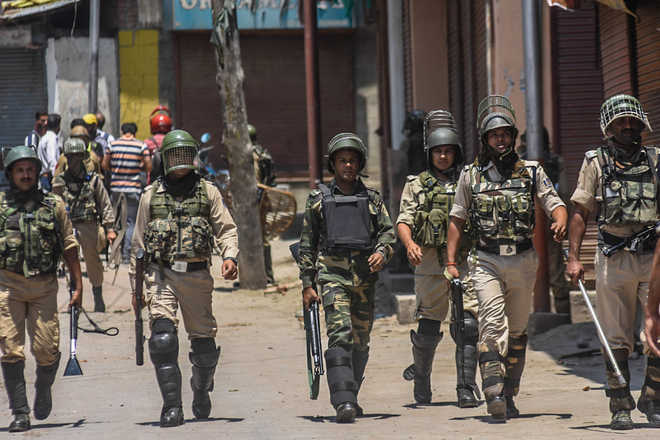The officially patronised, owned and controlled Chinese Media has mounted a “Media War” on the Doklam impasse. This approach affords official deniability for the Chinese regime, whilst, simultaneously upping the ante in the build-up to the tensions. Towards the same, my article in today’s THE CITIZEN
The spark that lit the first embers of ‘Arab Spring’ for the Tunisian President Zine El Abidine Ben Ali, was majorly stoked by the emerging Media landscape. Independent ‘voice’ of the masses via the social media platforms, facilitated the space for civic engagement and connect, free from the clutches of the dictatorial and authoritarian diktats of the then ruling Arab regimes.
Cyber-activism was the death knell for regimes in Tunisia, Egypt, Libya to Syria, where the mass discontentment and consciousness found solace and expression against the ruling dispensations.
The totalitarian regime in Beijing kept a wary Hawkeye as the events unfolded on the fellow-totalitarian regimes in the Middle East and North Africa, drawing inferences and lessons, to nip in the bud, any loose talk of ‘Jasmine Revolution’ in China.
The ‘Arab Spring’ reinforced the criticality of controlling media amongst the Chinese leadership to selectively censor certain content, as indeed, to propound and aggressively posture the governmental point of view. The increasingly consumer-driven economy of China devised its own unique formula and contours of ‘opening-up’ that entailed the ostensible freedom of press and opinions, albeit, with blanket ban of content from Western sources or from platforms like Google, Facebook, YouTube, Twitter etc. that could prick the bubble of propagandist reality of the regime.
This affords a responsibility on the officially patronised media houses to globalise state propaganda and propound Chinese positions internationally. Complex ownership interlinkages have ensured that China now has the most sophisticated and restrictive media controls (The 2017 Freedom of Press Index notes a worsening trend as President Xi Jingping ensures strict adherence to ideological and national alignment of the media to the regime positions). So Media, along with the CPC (Communist Party of China) top-brass and PLA (People’s Liberation Army) fuels the essential totalitarian resilience to bolster its regime legitimacy in China.
The Global Times is the most famous Chinese media face internationally, that typifies the ultra-nationalistic jingoism and is credibly accused of maintaining the official CPC line – earning it the left-handed compliment as the ‘China’s Fox News’ ! The subtle nudge to the publication by the Chinese regime, allows the regime to maintain optics of official sobriety, while the publication adopts a more populist, belligerent and nationalistic line that is completely aligned to the regime positions on all contentious issues.
The spooking of India’s NSG bid was presented as, “India wants to be the first exception to join the NSG without signing the NPT. It is morally legitimate for China and other members to upset India’s proposal in defense of principles” and adds, “US backing adds the biggest impetus to India’s ambition. By cozying up to India, Washington’s India policy actually serves the purpose of containing China.
The US is not the whole world. Its endorsement does not mean India has won the backing of the world”. It incredulously contextualised Hafiz Saeed and Dalai Lama simultaneously when it stated, “New Delhi is dissatisfied with Beijing’s stance over its membership bid to the Nuclear Suppliers Group and its request to name Masood Azhar, head of Pakistani militant group, to a UN Security Council blacklist. Therefore, Delhi attempts to play the Tibet card against Beijing. In fact, China has never thought of making trouble for India, and is handling these issues in accordance with international practices and UN regulations”.
Therefore the latest round of spewing surrogate fire from the Dragon’s den, was expectedly carried out by Global Times, in particular. The recent Dokalam standoff has manifested in six thousand soldiers from the two nuclear-armed countries, staring down each other in an dangerous portent – ably aided by ‘cover-fire’ from Global Timesthat insists that India be taught a, “bitter lesson” and suggesting “New Delhi’s regional hegemony is swelling to a tipping point.
The country has to pay for its provocations”. The controlled Chinese media is effectively voicing the shriller and more war-trumpeting messages for both internal and external constituencies, to flank the diplomatically measured tones emanating from the governmental sources that lacks the populist bite. Specific counter-fire from India is retaliated via the Chinese media that states, “Indian Army Chief General Bipin Rawat previously said that India was ready for a two-and-a-half front war (Pakistan, China and against internal extremists), and China responded by suggesting India “not forget history lessons,” referring to the 1962 border conflict in which China won an overwhelming victory. India’s Defense Minister Arun Jaitley then remarked that India is not what it was in 1962, and China responded by saying neither was China”.
This unwarranted media tonality offers the invaluable option of official deniability, whilst, upping the ante in the lead-up to any issue. This has repeatedly occurred on Chinese twitch-spots like Hong Kong, Taiwan, Japan, South China Sea conflicts or sending messages to the West, and in particular to the US. Behind the curtains of an ostensibly independent brand identity, Global Times has the genealogical link to the stuffy and turgid mouthpiece of the Chinese Communist Party, People’s Daily – however, it has been ‘allowed’ and ‘encouraged’ to own a very bellicose voice, as compared to its parent body to do the Chinese state’s bidding in a more effective manner.
So, should the war-mongering editorials from China be taken seriously by India? Yes and No, Yes because beyond the bureaucratese, the real Chinese position, logics and rationales are subsumed in between the fiery editorial lines – and No, because the text seeks to posture a lot more than the real official intent. China has undeniable expansionist tendencies and it rarely shies away from playing realpolitik – from Hafiz Saeed, NSG, permanent UNSC seat to Doklam, it runs with the hare and hunts with the hound.
Henry Kissinger the cold-war warrior and long term China observer noted presciently on China, “The art of crisis management is to raise the stakes to where the adversary will not follow, but in a manner that avoids a tit for tat” – it is here that we need Bhutan to effectively call the Chinese bluff, and unambiguously puncture suggestions of an Indian vassal-state, as suggested in Chinese editorials, “India controls Bhutan’s defense and diplomacy, seriously violating Bhutan’s sovereignty and national interests”.
Like in the South China Seas, the restive South Asian neighbourhood needs to offer a consolidated position against the Chinese instincts and double-speak. While a military stand-down from Doklam is not at all an option for India, neither should an escalation to a warlike situation, be the only other option. Doklam has long-term strategic import for India and Bhutan, as indeed all other countries in the region.
(Lt. General Bhopinder Singh (Retired) is former Lt Governor of Andaman and Nicobar Islands & Puducherry)

























































 HT PHOTO
HT PHOTO


























































